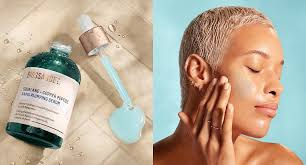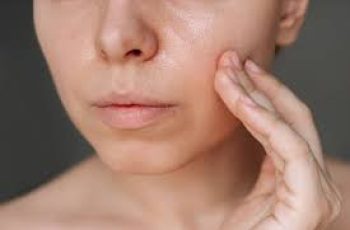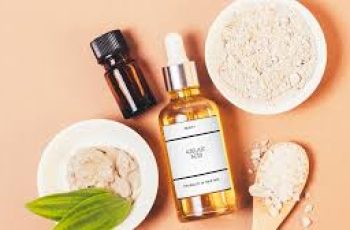
Can Copper Peptides Replace Retinol? Everything You Need to Know
For decades, retinol has been the gold standard in anti-aging skincare. This vitamin A derivative is famous for its ability to smooth wrinkles, fade dark spots, and renew the skin’s surface.
Yet, retinol is also known for causing irritation, redness, and dryness — especially for those with sensitive skin.
Meanwhile, copper peptides have quietly earned a loyal following for their skin-healing and rejuvenating effects.
Recently, copper peptides have been hailed as a gentler alternative to retinol, with many wondering: Can copper peptides replace retinol in your skincare routine?
In this comprehensive guide, we’ll break down how both ingredients work, their unique benefits, potential drawbacks, and how to decide which one is right for you.
What Are Copper Peptides?
Copper peptides are small molecules made of amino acids bonded to copper ions. The most studied peptide, called GHK-Cu, naturally occurs in your body and plays a vital role in skin repair and regeneration.
These peptides help promote skin health by:
Stimulating collagen and elastin production, key proteins that keep skin firm and elastic
Acting as antioxidants to protect skin from environmental stressors like pollution and UV damage
Supporting wound healing and reducing inflammation
Strengthening the skin’s natural protective barrier
Unlike retinol, copper peptides do not exfoliate the skin. Instead, they help the skin rebuild and maintain its structure from within, promoting a healthier, more youthful appearance with less irritation.
What Is Retinol?
Retinol is a form of vitamin A that accelerates the skin’s natural cell turnover process. By encouraging old, damaged skin cells to shed faster, it reveals new, fresher cells on the surface.
Retinol is known for its ability to:
Smooth fine lines and wrinkles
Improve overall skin texture and tone
Fade hyperpigmentation, dark spots, and acne scars
Clear acne by preventing clogged pores
Because retinol actively exfoliates the skin, it can cause side effects such as dryness, redness, peeling, and sensitivity, especially when you first begin using it or if you have sensitive skin.
How Do Copper Peptides and Retinol Compare?
Both ingredients deliver important anti-aging benefits but through different mechanisms.
Feature Copper Peptides Retinol
Mechanism Stimulates collagen/elastin, repairs skin Accelerates cell turnover, exfoliates
Skin irritation Low, gentle on sensitive skin Moderate to high, can cause dryness and peeling
Effect on skin texture Indirectly improves firmness Directly smooths texture and fine lines
Impact on pigmentation Prevents further pigmentation, mild brightening Effectively fades dark spots and hyperpigmentation
Acne-fighting properties Mild antibacterial and anti-inflammatory Strong, unclogs pores and reduces breakouts
Antioxidant protection Yes Limited
Suitable for sensitive skin Yes Sometimes no
Cost Usually higher-priced Generally affordable
Can Copper Peptides Replace Retinol?
Yes, but it depends on your skin concerns and goals.
If your skin is sensitive or prone to irritation, copper peptides can be an excellent substitute for retinol. They promote skin repair and collagen production with less risk of dryness or redness.
If you want to improve skin texture, fade stubborn dark spots, or treat acne aggressively, retinol remains the more effective choice.
Copper peptides offer many similar benefits to retinol, such as boosting collagen and promoting skin renewal.
However, they do not exfoliate as deeply as retinol, which is a critical factor in treating rough texture and pigment unevenness.
Benefits of Copper Peptides
Copper peptides shine when it comes to:
Stimulating collagen and elastin, making skin firmer and plumper
Soothing inflammation, reducing redness and skin sensitivity
Enhancing the skin’s natural repair process, including wound healing
Protecting skin with antioxidant effects
Strengthening the skin barrier, improving moisture retention and defense against irritants
Because they support the skin’s health from within, copper peptides are often recommended for those who want to slow aging but find retinol too harsh.
Benefits of Retinol
Retinol is renowned for:
Speeding up skin cell turnover to reveal fresher skin
Reducing fine lines, wrinkles, and rough texture
Fading hyperpigmentation, dark spots, and acne scars more effectively than most ingredients
Clearing and preventing acne by unclogging pores
Despite these advantages, retinol’s exfoliating action often causes dryness, peeling, and photosensitivity, requiring careful introduction and sun protection.
Can You Use Copper Peptides and Retinol Together?
Yes! Many skincare enthusiasts enjoy the benefits of both by:
Rotating their use on different nights, so skin isn’t overwhelmed
Using copper peptides in the morning and retinol at night
Layering carefully: apply retinol first, wait 20-30 minutes, then apply copper peptides or a peptide-rich moisturizer to soothe the skin
This combination can reduce retinol-related irritation while maximizing collagen stimulation and skin renewal.
How to Incorporate Copper Peptides and Retinol Safely
Start with low concentrations of retinol and gradually increase usage as tolerance builds.
Introduce copper peptides slowly, especially if your skin is sensitive.
Always perform a patch test before applying new products to your face.
Use broad-spectrum sunscreen daily, as retinol increases sun sensitivity.
Consult a dermatologist if you experience severe irritation or have specific skin conditions.
How Often Should You Use Copper Peptides?
Copper peptides are gentle enough for daily use, often twice a day. They pair well with hydrating ingredients like hyaluronic acid, helping to restore moisture and strengthen the skin barrier.
Cost Considerations: Copper Peptides vs Retinol
Copper peptides are generally more expensive than retinol. This is due to the complexity of stabilizing peptides and copper ions in formulas and the extensive research behind their skin benefits.
Retinol products come in a wide range of prices and formulations, making them more accessible.
Who Should Choose Copper Peptides?
Those with sensitive skin prone to redness or dryness
People who want to prevent aging and support skin repair without irritation
Anyone looking for antioxidant protection alongside anti-aging benefits
Individuals who have tried retinol but could not tolerate the side effects
Who Should Choose Retinol?
Those who want significant improvement in skin texture
People focused on fading dark spots, melasma, or acne scars
Anyone looking for powerful acne treatment
Individuals with skin that can tolerate some dryness and irritation for faster results
Do Copper Peptides Lighten Skin?
Copper peptides do not exfoliate the skin to the extent retinol does, so they are not primarily used for skin lightening.
However, they can prevent further pigmentation by inhibiting melanin production and protecting skin from UV damage.
For visible brightening or lightening, retinol remains the more effective ingredient.
Summary: Can Copper Peptides Replace Retinol?
Copper peptides can replace retinol if your priority is gentle anti-aging and skin repair.
Retinol is more effective if you want texture improvement, hyperpigmentation fading, or acne control.
Many skincare routines benefit from using both ingredients strategically for balanced results.
Final Tips for Success
Introduce new actives slowly to avoid irritation.
Always use sunscreen — both ingredients increase sun sensitivity.
Consider consulting a dermatologist for personalized advice.
Be patient: skin renewal takes time, and results build gradually.
If you’d like, I can help you craft a personalized skincare routine including copper peptides and/or retinol or recommend specific product types based on your skin needs. Just let me know!


